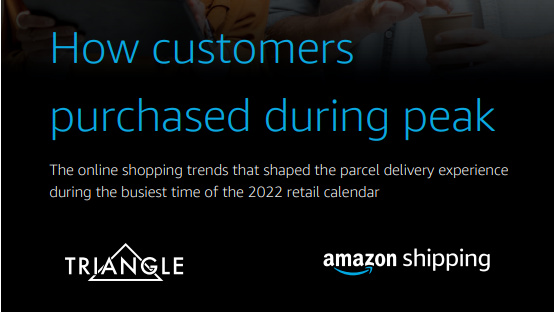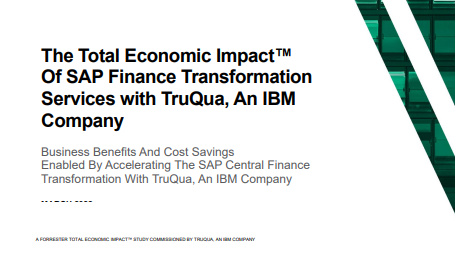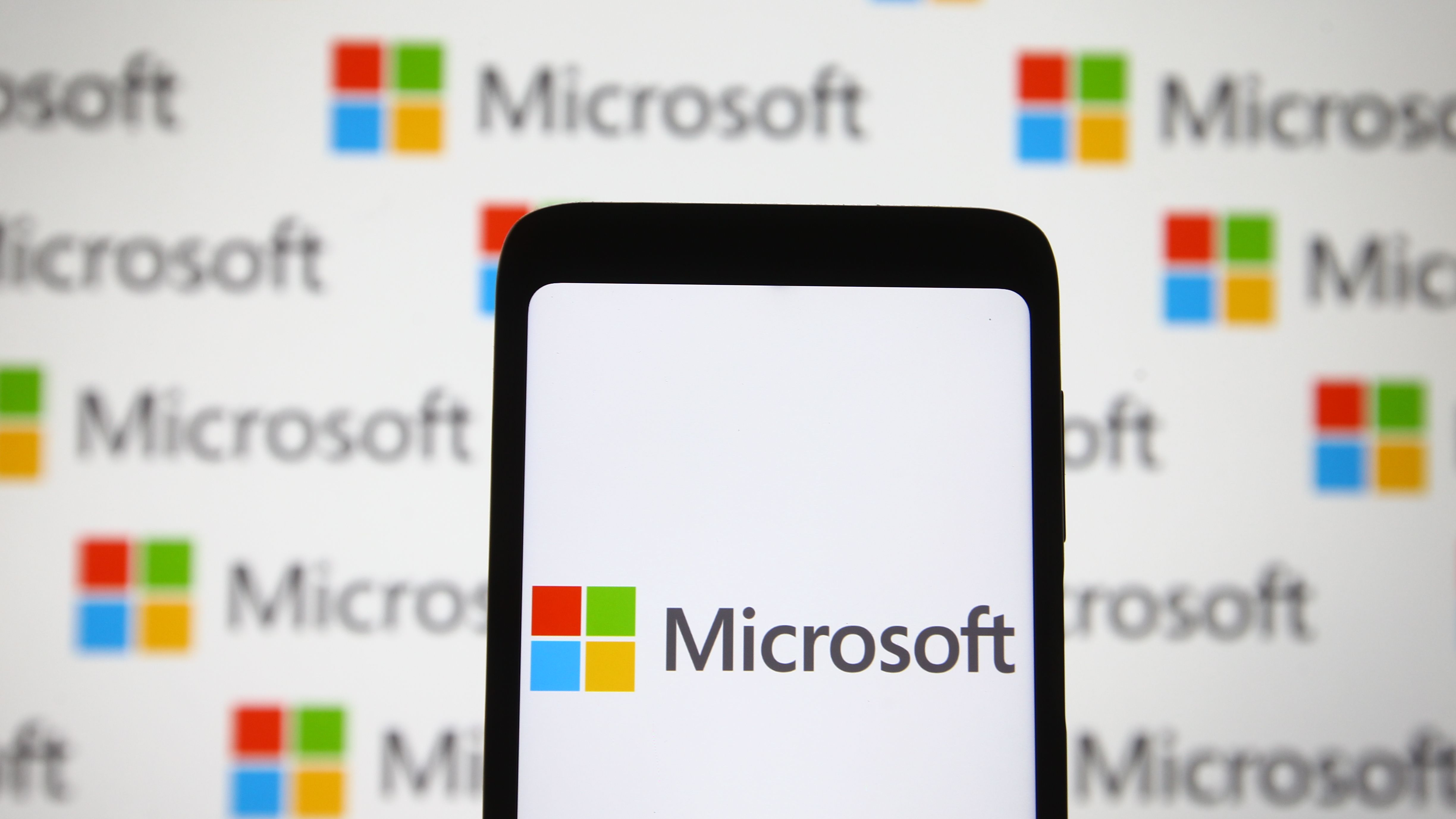How Crew Clothing went mobile to turn around a struggling business
Mobile sales tech unleashed a tide of change, buoying further growth across the UK coast-inspired casualwear chain

For staff at Crew Clothing, traditional point-of-sale (PoS) tills had, over the years, become restrictive – holding back sales activities and future growth.
"As technology moves on, people get frustrated with the speed at which things happen, and the nuances of areas of the system that tend to go wrong," says Richard Surman, head of IT at the coast-inspired casualwear chain. Surman was brought in around the time of the first COVID-19 lockdown to "come up with a strategic IT direction".
Going mobile, partly inspired by free-roaming Apple Store layouts, has already seen costs reduce, the customer experience improve, and agility rise, he says.
"As technology moves on, people get frustrated with the speed at which things happen, and the nuances of areas of the system that tend to go wrong," says Richard Surman, head of IT at the coast-inspired casualwear chain. Surman was brought in around the time of the first COVID-19 lockdown to "come up with a strategic IT direction".
Going mobile, partly inspired by free-roaming Apple Store layouts, has already seen costs reduce, the customer experience improve, and agility rise, he says.
The business faced a 13% revenue decline in 2021, when COVID-19 was at its peak and retail moved largely online. Now, the company has more than 100 stores and reported a 40% growth in sales last year to £82.7 million. It predicts further expansion in the future.
Working with IT partner PMC over 12 weeks, the London-headquartered retailer developed a cloud-enabled Android app-and-tablet-based sales solution integrated with Crew's card payment provider, enabling staff to serve customers as and where needed, he says.
Get the ITPro daily newsletter
Sign up today and you will receive a free copy of our Future Focus 2025 report - the leading guidance on AI, cybersecurity and other IT challenges as per 700+ senior executives
"Staff log in, press a button, scan the barcode, press 'total', job done. You pay for the products and away you go," says Surman. "The key was to make it really easy – and it was quick to develop because, basically, we had a set number of products we wanted to sell."
Key mobile sales components

Joining Crew Clothing in July 2020, Surman is responsible for providing business-critical IT services for a user base encompassing more than 150 head office staff and more than 100 retail outlets distributed throughout the UK.
Front-end architecture with e-basket functionality was coded by PMC to 'talk' to a Couchbase database layer, with both elements integrated into a Splunk-based reporting platform.
All stores can view all sales transactions, customer capture information, e-receipt percentage versus physical printed receipts, average basket value, and more, with sales data fed in real-time into the Microsoft-driven enterprise resource planning (ERP) system.
Data is updated at the endpoint tablets within ten or 15 seconds, helping ensure sales efficiency and accurate inventory management on the fly, Surman says. If the internet goes down or devices can't talk to central systems, the setup itself "flips over" to offline mode.
Staff can still transact business as usual, using 4G SIM-enabled card machines, he says. He warns that Crew was not "completely sold" on the idea initially, however. But Surman knew he could showcase it at various Crew-sponsored summer sporting events, such as Henley Regatta and with the Lawn Tennis Association.
"It was really successful at those events. No failures, no issues, store staff at the events loved it, as did our directors that went along," he explains. "So we moved on, broadening the remit to ensure we could deliver it to our store environment."
Dodging curveballs
Other "curveballs" did occur, Surman admits. The company's card payment provider pulled out, which meant deploying an entirely new card payment solution as well as building out their promotion engine for faster product scanning and access to the customer database.
"PMC, again working with Couchbase, delivered quick, seamless integration with our existing systems and a great store-staff experience," Surman says.
RELATED RESOURCE

Accelerate full-stack web and mobile app development
Three tips proven to help teams build modern apps faster
Integrating with the existing, legacy ERP platform was the biggest tech challenge. Surman now says he wishes he'd invested more time on that interface before go-live, even with relatively clean, easy-to-load data.
"We spent three months manually loading sales into the system," he says. "We devised a slick process for doing it but obviously that time could have been better spent doing something else."
Hardware costs are now "a hell of a lot cheaper", Surman reveals, noting that physical cash registers and equipment have long been costly and time-consuming to manage and maintain. "We no longer need a hardware support function for store staff, and the IT cost of setting up a new store is about 65% lower. "Transactions are about 45% faster than our old till system."
Store staff and IT now free to innovate
Customers now rarely need to queue except at "crazy" times like Black Friday or Christmas, meaning fewer lost sales when customers can't or don't wish to wait in line to make their purchases. Surman says. "This gives us a lot more time with the customers as well."
That includes his 13 IT staff who, freed from laborious hardware management, have time to work proactively with other departments, visiting stores or coming up with innovations.
READ MORE IN OUR SERIES
In April 2023, Crew is in a final testing phase for the full omnichannel or "phygital" customer experience, integrating the tablet solution to the website so stock displayed online better matches inventory.
There's also a new product information system that's been introduced for merchandisers and buyers, loading data to the mobile solution overnight. Real-time is possible but could prove more disruptive to staff physically working on the sales floor each day, says Surman.
"Now, we're just in the final throes of integrating a new gift card solution with the tablet, so that we can completely get rid of the tills," he confirms. "And a slicker version 2.0 is coming this summer."
Fleur Doidge is a journalist with more than twenty years of experience, mainly writing features and news for B2B technology or business magazines and websites. She writes on a shifting assortment of topics, including the IT reseller channel, manufacturing, datacentre, cloud computing and communications. You can follow Fleur on Twitter.
-
 Bigger salaries, more burnout: Is the CISO role in crisis?
Bigger salaries, more burnout: Is the CISO role in crisis?In-depth CISOs are more stressed than ever before – but why is this and what can be done?
By Kate O'Flaherty Published
-
 Cheap cyber crime kits can be bought on the dark web for less than $25
Cheap cyber crime kits can be bought on the dark web for less than $25News Research from NordVPN shows phishing kits are now widely available on the dark web and via messaging apps like Telegram, and are often selling for less than $25.
By Emma Woollacott Published
-
 Preparing for peak: How customers purchased during peak
Preparing for peak: How customers purchased during peakwhitepaper The online shopping trends that shaped the parcel delivery experience during the busiest time of the 2022 calendar
By ITPro Published
-
 The Total Economic Impact™ of SAP finance transformation services with TruQua
The Total Economic Impact™ of SAP finance transformation services with TruQuaWhitepaper Business benefits and cost savings enabled by accelerating the SAP central finance transformation
By ITPro Published
-
 Avoiding cloud migration pitfalls for SAP
Avoiding cloud migration pitfalls for SAPWhitepaper Determining the best approach to SAP HANA
By ITPro Published
-
 What to expect from Oracle CloudWorld 2022
What to expect from Oracle CloudWorld 2022Opinion Larry Ellison and co are heading to Las Vegas for a rebranded cloud-centric show
By Bobby Hellard Published
-
 Acumatica reinforces channel focus with new Services Partner Program
Acumatica reinforces channel focus with new Services Partner ProgramNews New initiative will see service partners join the cloud ERP provider’s VARs and ISVs
By Daniel Todd Published
-
 Microsoft announces Teams chat integration for Dynamics 365
Microsoft announces Teams chat integration for Dynamics 365News The integration offers features to streamline collaboration between teams while aiming to enable the faster closing of sales
By Daniel Todd Published
-
 Unit4 acquires Scanmarket to bolster ERP suite
Unit4 acquires Scanmarket to bolster ERP suiteNews The acquisition aims to extend Unit4’s transactional procurement functionality and provide more benefits for its customers
By Zach Marzouk Published
-
 ERP transformation timeframes cut from years to weeks
ERP transformation timeframes cut from years to weeksNews Businesses are no longer questioning the value of digitisation, SAP execs say, but the c suite is still holding things back
By Keumars Afifi-Sabet Published